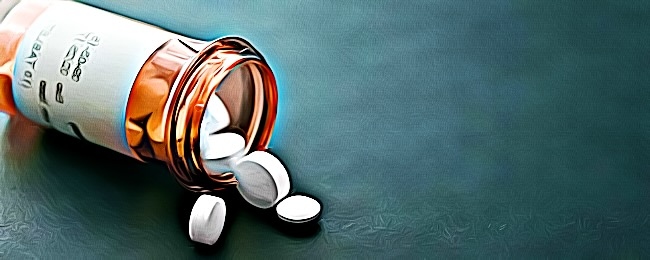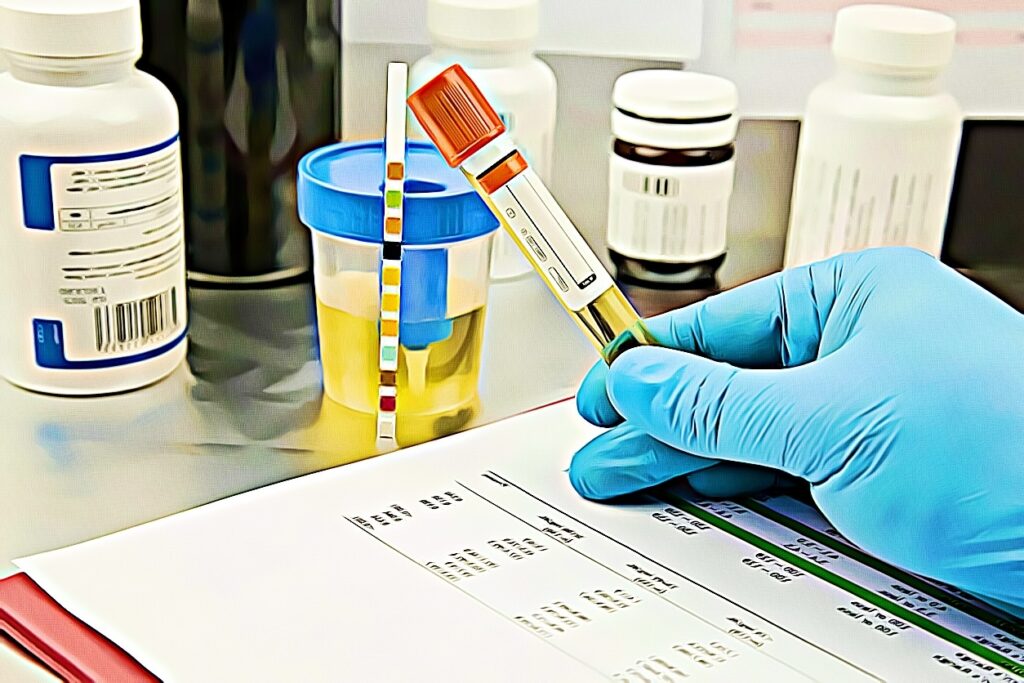Muscle relaxers are drugs that can help to relieve muscle spasms, pain, and stiffness. They are typically used for low back pain, neck pain, and fibromyalgia. Muscle relaxers affect the central nervous system to help reduce muscle tension and pain. There are a variety of muscle relaxers available, and they can be taken by mouth, injected, or applied topically.
Will Muscle Relaxers Appear in a Drug Test?
Many people worry that muscle relaxers will show up on a drug test, but the truth is that they usually won’t. Drug tests usually only test for the presence of illegal drugs, not for prescription medications. However, there are some exceptions to this rule.
Some employers may require employees to take a drug test as a condition of employment. In these cases, the employer may specifically test for the presence of muscle relaxers. However, this is relatively rare.
There are also some instances in which muscle relaxers could show up on a drug test even if they’re not being specifically tested for. This can happen if the drug test is looking for the presence of a class of drugs that includes muscle relaxers. For example, some drug tests may test for the presence of benzodiazepines.
What Are Examples of Muscle Relaxers?
There are several types of muscle relaxers, and each one works differently. Here are some examples of muscle relaxers that your doctor may prescribe you:
1. Baclofen
Baclofen is a medication typically used to treat spasticity or muscle stiffness. It works by inhibiting the signals sent from the brain to the muscles, which can help relax them.
2. Carisoprodol
Carisoprodol is a muscle relaxer that works by blocking pain signals that are sent to the brain. It is typically used to treat pain that is associated with muscle spasms.
3. Cyclobenzaprine
Cyclobenzaprine is a medication that is commonly used to treat muscle spasms. It works by blocking the signals sent from the brain to the muscles, which can help relax them.
4. Diazepam
Diazepam is a medication commonly used to treat anxiety, muscle spasms, and seizures. It works by inhibiting the signals sent from the brain to the muscles, which can help relax them.
5. Methocarbamol
Methocarbamol is a medication that is typically used to treat pain and stiffness that is associated with muscle spasms. It works by blocking the signals sent from the brain to the muscles, which can help relax them.
How Long Do Muscle Relaxers Stay In Your System?
This is a question that many people ask, especially those who are prescribed these medications. Muscle relaxers are typically prescribed for muscle spasms, injuries, and pain. They work by relaxing the muscles and can provide relief for a variety of symptoms.
There are many types of muscle relaxers, and the length of time they stay in your system can vary. The half-life of a medication is the amount of time it takes for the concentration of the drug in your body to be reduced by half. The half-life of a muscle relaxer can range from two to six hours. It can take up to 12 hours for the drug to be completely eliminated from your system.
What Factors Affect Their Stay In Your System?
There are a variety of muscle relaxers on the market, and the length of time that they stay in your system can vary depending on the particular medication. Factors that can affect how long muscle relaxers stay in your system include:
The Type of Muscle Relaxer
Some muscle relaxers are more short-acting than others. For example, carisoprodol (Soma) only stays in your system for around two to six hours, while cyclobenzaprine (Flexeril) can stay in your system for up to four days.
The Dose
A higher dose of medication will stay in your system for longer than a lower dose.
Your Age
Older adults tend to metabolize medications more slowly than younger adults so that the medication may stay in their system for longer.
Your Liver Function
Suppose you have liver damage or liver disease. In that case, it can affect how quickly your body metabolizes medications, and the medication may stay in your system for longer.
Your Kidney Function
Suppose you have kidney damage or kidney disease. In that case, it can affect how quickly your body eliminates medications from your system, and the medication may stay in your system for longer.
Are Muscle Relaxers a Controlled Substance?
Muscle relaxers are not controlled substances but are regulated by the Food and Drug Administration (FDA). The FDA classifies muscle relaxers as prescription drugs, meaning they can only be obtained with a doctor’s prescription. However, some muscle relaxers are available over-the-counter (OTC).

Are Muscle Relaxers Addictive?
There is a common misconception that muscle relaxers are not addictive. However, this is not the case. Muscle relaxers can be addictive, and people who take them for long periods can develop a dependence on them.
People who abuse muscle relaxers may take them in higher doses than prescribed or more often than prescribed. They may also crush and snort the pills or dissolve them in water and inject them. Muscle relaxers are sometimes used in combination with other drugs, such as alcohol, to enhance their effects.
Abusing muscle relaxers can lead to serious side effects, including drowsiness, dizziness, impaired coordination, slurred speech, and blurred vision. In high doses, muscle relaxers can cause seizures, coma, and even death.
People who abuse muscle relaxers may develop a tolerance to the drugs, meaning they need to take larger and larger doses to get the same effect. This can lead to an increased risk of overdose. People who are addicted to muscle relaxers may have trouble stopping their use, even if they experience negative consequences as a result.
If you or someone you know is struggling with an addiction to muscle relaxers, please seek professional help. Many effective treatment options can help people overcome their addiction and lead healthy, productive lives.
Seeking Help for Muscle Relaxer Addiction
Seeking help for muscle relaxer addiction can be a difficult and daunting task. Many resources are available, but finding the right one can be tricky. Here are some tips to help you find the help you need.
1. Talk to Your Doctor
This is the first and most important step. Your doctor can help you understand your addiction and find the best course of treatment.
2. Seek Out a Treatment Center
Many treatment centers specialize in helping people with muscle relaxer addiction. Find one that is accredited and has a good reputation.
3. Join a Support Group
There are many support groups available for people with muscle relaxer addiction. This can be a great way to get support and encouragement from others going through the same thing.
4. Get Help from a Professional
Many professionals can help you with your muscle relaxer addiction. Find one that you feel comfortable with and that you trust.
5. Take Care of Yourself
This is important both physically and mentally. Eating healthy, exercising, and getting enough sleep will help your body and mind heal.
Conclusion
Muscle relaxers are a class of drugs commonly used to treat various conditions that cause muscle spasms. While these drugs are generally safe and effective, they can cause some side effects, including drowsiness, dizziness, and nausea. In some cases, muscle relaxers can also cause false positives on drug tests. Therefore, talking to your doctor about any potential risks before taking these drugs is important.

